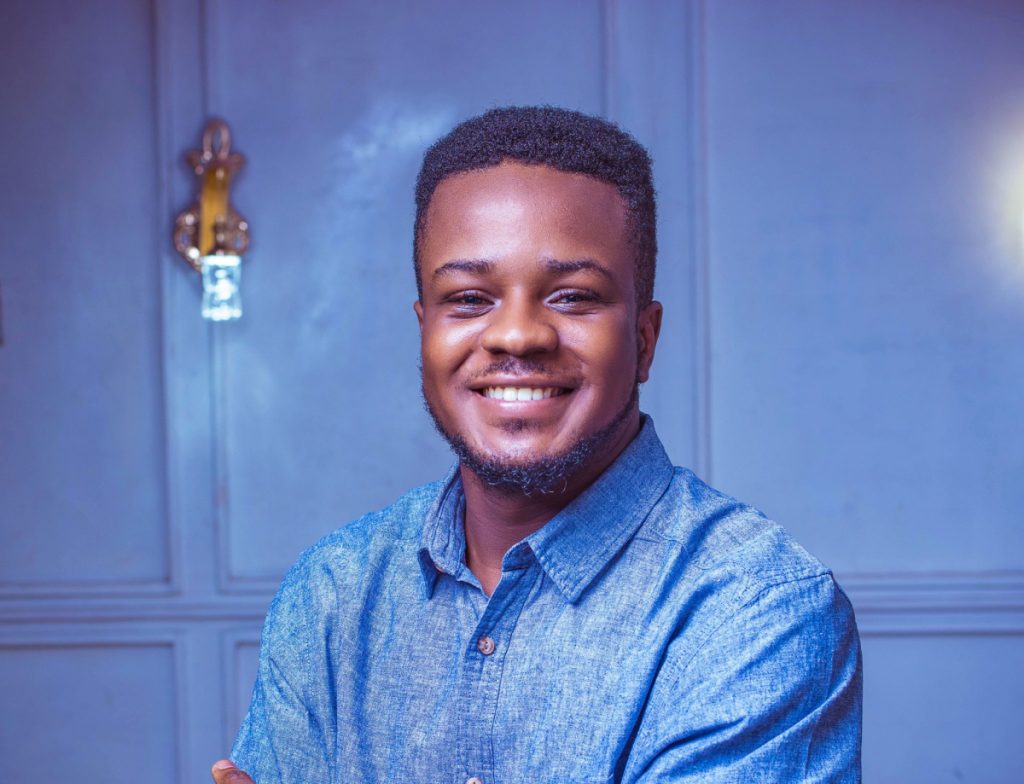As a kid in high school, Stanley Anigbogu had big dreams. He wanted to invent sustainable technologies to solve global problems, particularly those relevant to Nigeria, his home. But without the resources or support needed to develop them, his ideas seemed doomed to the eternal drawing board.
So, Anigbogu decided to become the mentor he never had, sharing his enthusiasm for STEM subjects with his peers. At age 17, he and two high-school friends founded ArtecHubs Nigeria, a STEM education programme that teaches knowledge and skills – with a good helping of self-belief – to school students in the south-east of the country. The programme, which is presented in schools by Anigbogu and his co-founders, involves plenty of practical exercises, such as building robots and flashlights with easy-to-obtain materials.
Anigbogu initially funded ArtecHubs Nigeria by working part-time at the local markets and collecting and selling scrap metal. Contributions from family and friends also helped get the programme off the ground. Together with his partners, Anigbogu has engaged thousands of kids. They’ve launched a dedicated program for girls called Stem4Her, which has helped 1,500 girls from rural Nigeria develop basic STEM skills.
Through his mentorship, Anigbogu gained the skills, confidence and connections he needed to develop his own product, LIGHT ED, a storage system for solar power that he’s been conceptualising since he was a teenager. LIGHT ED has since attracted the attention of the likes of Google and international science platform, Falling Walls.
Lighting it up
As an entrepreneur and storyteller, 22-year-old Anigbogu’s goals are lofty, but he’s happy to take baby-steps to get there.
As we chat via Zoom, the lights in his home flicker – electricity supply in Anambra, a state in south-eastern Nigeria, is intermittent, says Anigbogu, but our interview is safe because his laptop is run using LIGHT ED.
“We use electronic waste to build this solution,” he told The Brilliant, flanked by shelves of components and the only 3D printer in the city of Onitsha. “We recycle electronic components from discarded laptops and many other things and build new systems that people can use to light up their homes.”
Now six years in development, LIGHT ED is supported by a $US35,000 grant that Anigbogu won earlier this year at the 2022 Fishbowl Challenge, a Silicon Valley-based social development not-for-profit organisation. It’s nearing commercial launch, says Anigbogu, who is deferring his studies at the African Leadership University in Rwanda to get his product to market.
Born in Nigeria, and the eldest of five children, Anigbogu counts himself lucky to have parents who were supportive and proud of their creative, individualistic son. His mother has a degree in electronics and his father is a filmmaker and physical trainer. From an early age, Anigbogu’s parents urged him to get a university qualification and establish a career, but Anigbogu had other ideas.
“I’ve always been weird,” he says. “When the other kids were playing in the playground, I would be in the corner, reading an encyclopaedia. I was always acting older than my age. I was both school-smart and street-smart. I saw that a ‘proper’ education does not define you, or help you to create change, or guarantee a stable career or even a balanced life.”
Anigbogu says ArtecHubs Nigeria was a response to the lack of systemic support and opportunities he experienced as a student. “There were things I wanted to build, places I wanted to go, opportunities I wanted to apply for, but thought I couldn’t, because no one actually told me ‘You can do this, and here’s how,” he says.
The programme has trained as many as 5,000 students, many of whom have succeeded in local, national and even international invention and design competitions.
In 2021, Anigbogu launched the Dream Box Initiative, which provides free STEM kits and training to children who wouldn’t otherwise have access to the tools and materials needed to experiment with technology.
Dreaming big
It’s too early to assess the impact of the ArtecHubs Nigeria, says Anigbogu, but he expects that graduates will be training other students within a couple of years.
“It’s fostering an ecosystem of changemakers and problem-solvers, and people who are willing to create that generational change within the ecosystem,” he says. “The best feedback I get from the students is not them saying they love the training, it’s them smiling while they’re doing the training. I love seeing them come up with their own ideas.”
While ArtecHubs Nigeria has garnered attention from international organisations, Anigbogu is yet to gain funding from the Nigerian government. He says that’s not necessarily a bad thing.
“I really just want to focus on building from scratch,” says Anigbogu. “A point will come when we’re big enough, when there is less risk, and they will come. But for now, we’re building everything at our own pace.”
Anigbogu concedes that there are plenty of roadblocks to developing new technologies and sustainable solutions to the big social and environmental problems that Nigeria faces. A key barrier, he says, is a cultural mindset: STEM is undervalued by the older generations and under-resourced in the classroom.
“The education system still basically uses the same setup that my mum used for STEM,” he says. “The kids here are not being enlightened, and that limits the mindset about on what’s possible with science and technology. The kids who are crazy enough to dream … many parents then tell them, ‘You have to turn down your volume.’”
“Kids are the future, and they deserve the best. I want to create a world where every child can have the tools they need to achieve their dreams.”
Follow Stanley Anigbogu on Twitter | Facebook | Instagram | LinkedIn
Article by Michelle Fincke

